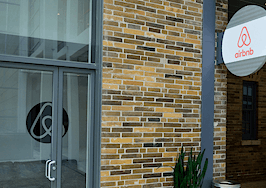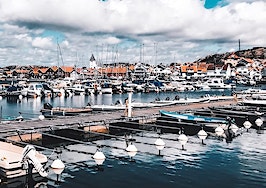Airbnb, the online platform that lets property owners rent their places primarily for short-term stays, is launching an office to tackle tourist overcrowding around the world.
The company, which has often been accused of driving up mass tourism and altering the culture of global cities through an influx of tourists, announced on Tuesday that it is launching the Office of Healthy Tourism to promote what it calls more authentic and sustainable travel. Over the last year, over 31 million people stayed in Airbnb homes in the US while there are currently 4.85 million listings on its site globally (Airbnb says it has rental listings in a staggering 191 countries).
“With travel and tourism growing faster than most of the rest of economy, it is critical that as many people as possible are benefiting – and right now not all tourism is created equal,” said Chris Lehane, Airbnb’s Head of Global Policy, in a statement. “In order to democratize the benefits of travel, Airbnb offers a healthy alternative to the mass travel that has plagued cities for decades.”
The idea, according to the company, is to encourage tourism to lesser-known parts of the world while also making sure the influx of visitors benefits those communities. Over the last year, the home-sharing company has taken on similar missions by launching programs that bring visitors to rural villages in Japan, Italy and China.
Now, Airbnb’s new office is set to launch more such programs for less-visited parts of the world. The company also appointed a Tourism Advisory Board to make sure that mission stays on track. Former Secretary General of the United Nations World Tourism Organization Taleb Rifai, former Australian Foreign Affairs Minister Bob Carr and Chief Executive of EON Reality Inc. David Scowsill have been appointed as its members.
In an effort to show that it takes sustainable tourism seriously, the company also released new community data, which showed that 66 percent of guests found the environmental impact important in their choice of deciding where to stay. 89 percent chose Airbnb because they found it more conveniently located than various hotels.
“Airbnb supports tourism that is local, authentic, diverse, inclusive and sustainable,” said Lehane. “[…] Airbnb is providing the type of travel that is best for destinations, residents, and travelers alike.”
The start to 2018 has been an eventful one for Airbnb — since January, the company has delayed plans to go public, launched new services for high-end travelers and won the right to have homeowners list the money generated from hosting on the platform as income on mortgage applications.












